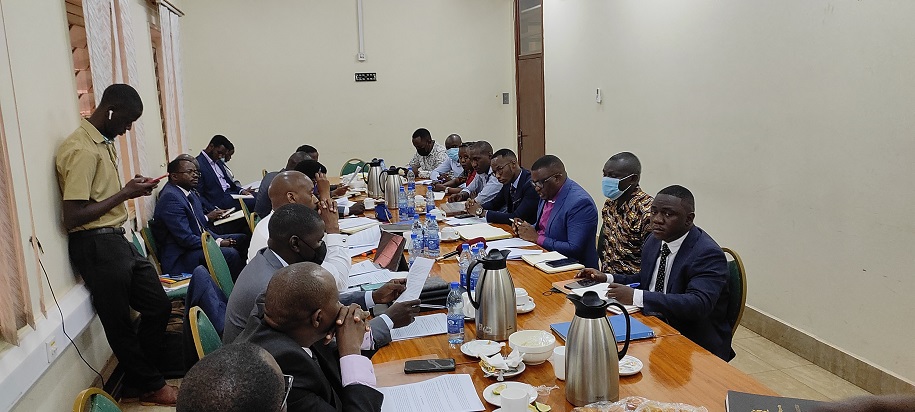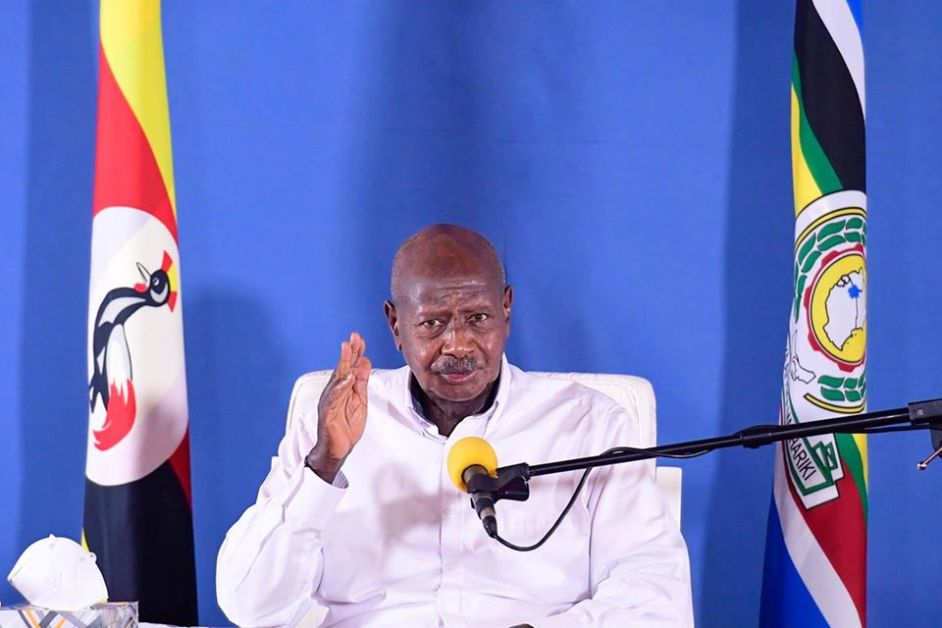Journalists before ICT Committee of Parliament
Top online websites under their umbrella body, the Independent Online Journalists Association – Uganda (INDOJA-U) Tuesday morning appeared before Parliament’s ICT Committee to give their views on the Computer Misuse (Amendment) Bill, 2022.
On 18 July 2022, Kampala Central Member of Parliament, Muhammad Nsereko, tabled the Computer Misuse (Amendment) Bill, 2022 for first reading.
The private members Bill is seeking to amend the Computer Misuse Act of 2011 and argues that existing laws “do not specifically address regulation of information sharing on social media” or are “not adequate to deter the vice”.
According to Nsereko, the objectives of the amendment are: to enhance the provisions on unauthorized access to information or data; prohibit the sharing of any information relating to a child without authorization from a parent or guardian; prohibit the sending or sharing of information that promotes hate speech; prohibit the sending or sharing of false, malicious and unsolicited information; and to restrict persons convicted of any offence under the Computer Misuse law from holding public office for a period of 10 years.
The Bill, however, comes at a time when the Ministry of ICT and National Guidance has embarked on the review and alignment of key sector laws, to harmonize and strengthen the regulatory, coordination, policy, monitoring and oversight functions within the communications and media sector.
Several actors in the media and legal spaces have expressed various views on the implications of this proposed law.
Appearing before the Committee Chaired by Nathan Igeme Nabeta (Deputy Chairperson of the ICT Committee), Association President Andrew Irumba Katusabe, Counsel of the Association – Joel Mucunguzi of Signum Advocates, Taddewo William Senyonyi, the Association Treasurer and some members of the association, told the Committee that the proposed amendment bill poses an incalculable risk of whittling away from the right to freedom of expression (including the freedom of the press) that is constitutionally guaranteed under Article 29 of the Constitution and other international human rights instruments.
“What are the legal implications of the Computer Misuse (Amendment) Bill? What does the proposed law mean for press freedom in Uganda? What is the best way forward?” Irumba questioned.
The Association fears that the Bill may ‘kill’ investigative journalism.
“I would like to submit that, the bill, in its entirety, seeks to kill INVESTIGATIVE JOURNALISM, where we investigate matters of concern clandestinely. I would hence conclude that this law seeks to ridicule and undermine other standing laws like the Anti-corruption Act, the IGG Act, the Evidence Act, the Access to Information Act among others,” Irumba told the Committee.
Counsel Mucunguzi said an amendment to the Computer Misuse Act, 2011 must consider how other jurisdictions define terms like “revenge porn,” cyberstalking, cyber-harassment, cyber-flashing and other terms that arise as a result of technological advancement. This way, he said the law should be couched to appreciate the realities of the information age and the internet without taking away its pivotal democratizing role.
Mucunguzi further said that the Committee should consider that the Act is currently in violation of Article 29 of the Constitution and that Sections 24 and 25 are unlikely to survive on the law books after the current Constitutional petition.
“A smart legislature would be well informed in proactively repealing these vague, imprecise and overbroad provisions,” Mucunguzi said.
He appealed to the committee to consider the fact that social media has a self-correcting mechanism to the extent that studies have found that whereas it may be easy to spread “false” information; it is also much easier to debunk false information.
“The Bill requires an immediate overhaul. Deletion of the provisions that duplicate the Data Protection and Privacy Act, the Penal Code Act, the Interception of Communications Act, the Oaths Act among other laws will leave the Bill wholly hollow and without a leg to stand on,” the journalists told MPs on the ICT Committee.





